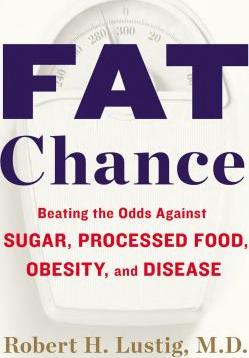
Fat chance : beating the odds against sugar, processed food, obesity, and disease
Available Copies by Location
| Location | |
|---|---|
| Victoria | Available |
Browse Related Items
- ISBN: 159463100X
- ISBN: 9781594631009
- Physical Description xv, 320 pages
- Publisher New York : Hudson Street Press, [2012]
- Copyright ©2012
Content descriptions
| Bibliography, etc. Note: | Includes bibliographical references (pages 281-301), Internet addresses and index. |
| Immediate Source of Acquisition Note: | LSC 27.50 |
Additional Information

Fat Chance : Beating the Odds Against Sugar, Processed Food, Obesity, and Disease
Click an element below to view details:
Excerpt
Fat Chance : Beating the Odds Against Sugar, Processed Food, Obesity, and Disease
The Mediterranean Diet Pioppi, a small town in Italy, is the home of the Mediterranean diet. In Ancel Keys' Seven Countries study (Italy was one of the countries), this diet was associated with lower death rates from heart disease. The diet was popularized in America due to its population's low incidence of disease and long lifespan. Unfortunately, Pioppi and many surrounding areas that originally consumed a peasant fare can no longer afford to do so. Processed food is more readily available and cheaper. These areas, once renowned for their health, have soaring rates of obesity in part due to a current lack of whole grains, fresh fruits, and vegetables from their diets. These items are just too expensive, and they don't taste as good. Here's what's in the real Mediterranean diet: high olive oil consumption (mono-unsaturated fat); legumes (beans, lentils, peas); fruits, vegetables, and unrefined grains (fiber); dairy products (saturated fat); eggs (high-quality protein); fish (omega-3s); and wine in moderation (resveratrol, flavonoids, and likely other factors). Americans misunderstand the Mediterranean diet, because they think it is all about pasta, which is Italian but not Mediterranean. Because what the Italians used to eat in Italy is not what the Italians eat in the United States. The pasta and pizza movement actually started in the United States within the poor Italian immigrant population, based on the cost of carbohydrates versus meat. That diet then migrated over to Italy. And now the Italians have our problem. Excerpted from Fat Chance: Beating the Odds Against Sugar, Processed Food, Obesity, and Disease by Robert H. Lustig All rights reserved by the original copyright owners. Excerpts are provided for display purposes only and may not be reproduced, reprinted or distributed without the written permission of the publisher.


